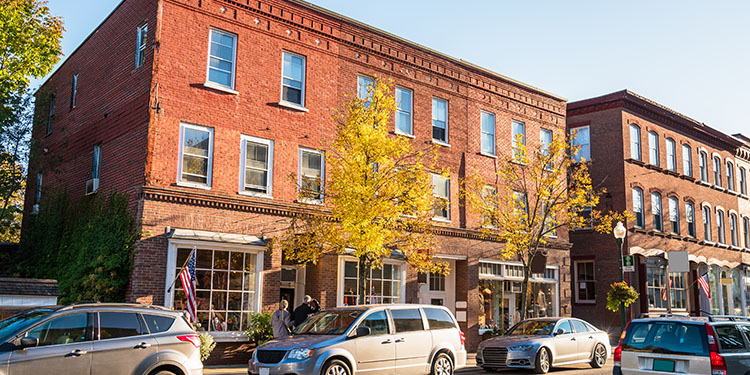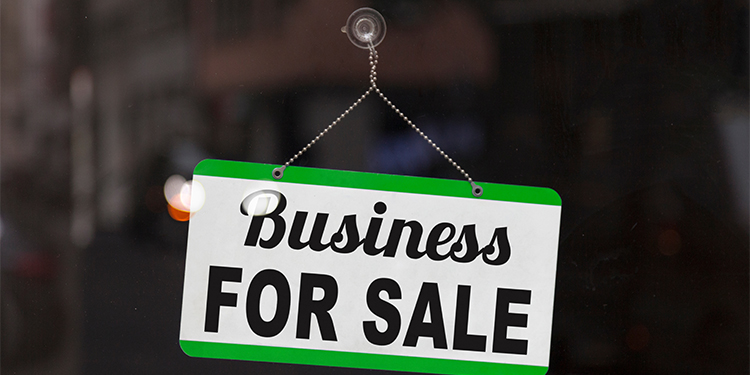
Real Estate Concerns When Selling Your Business
When selling a business, real estate decisions can significantly impact both the transaction structure and final sale price. Whether you own or lease your business property, understanding your options and their implications is vital for maximizing value and ensuring a smooth transition. Real estate valuation, property control considerations, and flexible deal structures all play vital roles in making your business attractive to potential buyers while meeting your own financial goals.
How to Value Real Estate in a Business Sale
For owned property, commercial real estate valuation involves getting a professional appraisal. The licensed appraiser evaluates factors like location, condition, and market trends, reviewing comparable sales to gauge competitive market value. They'll consider zoning regulations, future development potential, and property income when determining fair market value.
For leased property, valuation focuses on the lease terms' impact on business value. Favorable lease terms—like below-market rent, good location, or long remaining duration—can enhance business value. Conversely, above-market rent, short remaining terms, or unfavorable conditions can decrease value. The lease's transferability and any required landlord approvals also affect valuation.
Real estate metrics influence the overall estimated value of a business. A well-located, high-value owned property can attract buyers and command a premium asking price. Similarly, favorable lease terms can make a business more appealing. Special purpose real estate, like restaurants or manufacturing facilities, may require additional considerations during valuation. However, properties with structural issues, unfavorable leases, high property taxes, or declining market conditions may lower buyer interest and the overall valuation.
Owned Property vs. Leased Property
How commercial real estate is handled in a business sale depends on whether it’s owned or leased.
Owned property is treated as a business asset. The market value is determined by a detailed appraisal and factored into the sale price. Buyers often see ownership as a benefit because it offers long-term stability and control over the premises.
Leased property requires a careful review of the lease agreement. Buyers need to understand whether the lease is transferable, its duration, and any liabilities (like unpaid rent). They should also evaluate whether the lease terms align with their operational needs. Managing lease issues, like negotiating with the landlord for transfer or early exit, is important to avoid complications and ensure a smooth transaction.
Option 1: Complete Sale to Business Buyer
Selling a business and its real estate together can simplify operations for the new owner. It avoids the need for lease negotiations or landlord issues.
- Advantages: The buyer gets full control of the property without lease restrictions.
- Considerations: Buyers will need more capital to purchase the business since including the commercial property will increase upfront costs. When the purchase price involves a real estate investment, lenders look at metrics beyond cash flow and operating expenses.
- Private Equity Trends: Private equity buyers often prefer leasing to keep capital flexibility for growth initiatives. Offering a lease option may attract more buyers.
Option 2: Third-Party Sale-Leaseback
In a sale-leaseback, you sell the property to a real estate investor, then lease it back. Once the real estate transaction is complete, you have liquidity to reinvest into the business or other ventures, while still being able to use the space.
- Structure: You sell the property to a third party and sign a lease agreement to stay as a tenant.
- Advantages: Sellers get cash upfront to reinvest, and buyers have lower initial costs.
- Tip: Have a commercial real estate agent look at comparable properties in your area to assess the current market and negotiate fair terms.
Option 3: Becoming a Landlord
Instead of selling the property, you can lease it to the business buyer. This allows you to earn steady rental income, while keeping ownership of the property, providing a consistent rate of return on your investment over time.
- Advantages: As an investment decision, you retain value of a property and benefit from any future price increases, while also earning passive rental income.
- Considerations: You’ll need to assess the buyer’s ability to pay rent and have to manage the landlord-tenant relationship.
- Tip: Work with a commercial realtor to determine the subject property’s market value for lease rates and draft a clear lease agreement to avoid disputes.
This option works best if you want to maintain a connection to the property while earning long-term income.
Options for Leased Property
When selling a business with leased property, you have several paths to consider:
- Lease Assignment: Transfer your existing lease to the buyer, subject to landlord approval. This is often the simplest option if your lease terms are favorable and transferable.
- Lease Termination: Negotiate an early exit with your landlord, allowing the buyer to establish their own lease terms. This might require an exit fee but offers the buyer more flexibility.
- Sublease Agreement: If permitted by your lease, arrange a sublease with the buyer while maintaining the primary lease. This gives you more control but requires ongoing involvement in the lease relationship.
The best option often depends on your lease terms, landlord relationship, and buyer preferences. Review your lease agreement carefully and consider having your broker negotiate with the landlord early in the sales process.
Flexible Purchase Agreements
Flexible agreements can accommodate both owned and leased property scenarios.
For Owned Property:
- Lease to purchase: Gives business buyers flexibility to lease first with an option to buy later
- Right of first refusal: Buyers can match any outside offer if you decide to sell the property
- Seller financing: You finance the purchase directly, broadening the buyer pool because it eliminates lending and financing hurdles
For Leased Property:
- Graduated lease takeover: Buyer gradually assumes lease responsibilities
- Purchase option agreement: If you later acquire the property from your landlord, the buyer has first rights
- Shared liability structure: Creates a transition period where both parties share lease obligations
Tax implications vary by structure. For owned property, 1031 exchanges can defer capital gains taxes. For leased property, transfer fees and security deposits need careful consideration in the agreement structure.
Working with Professionals
Engaging professionals when selling a business with real estate can make the transaction smooth and maximize profitability.
- Brokers specialize in marketing and negotiating sales and are well-prepared to connect sellers with qualified buyers.
- Appraisers are best able to review comps and provide accurate valuations of a property.
- Legal professionals are important for structuring contracts, reviewing lease agreements, and addressing regulatory compliance.
Separating the business valuation from the real estate valuation is helpful to both parties. It makes it possible to understand the contribution of each asset to the overall sale price, streamlines negotiations, and supports informed decision-making. Hiring the right team for guidance helps make certain that every aspect is handled effectively to reduce risks and complexities.
Ready to sell your business? Visit BizQuest’s Business Broker Directory to find a professional who can help you navigate real estate concerns during the sale process.





